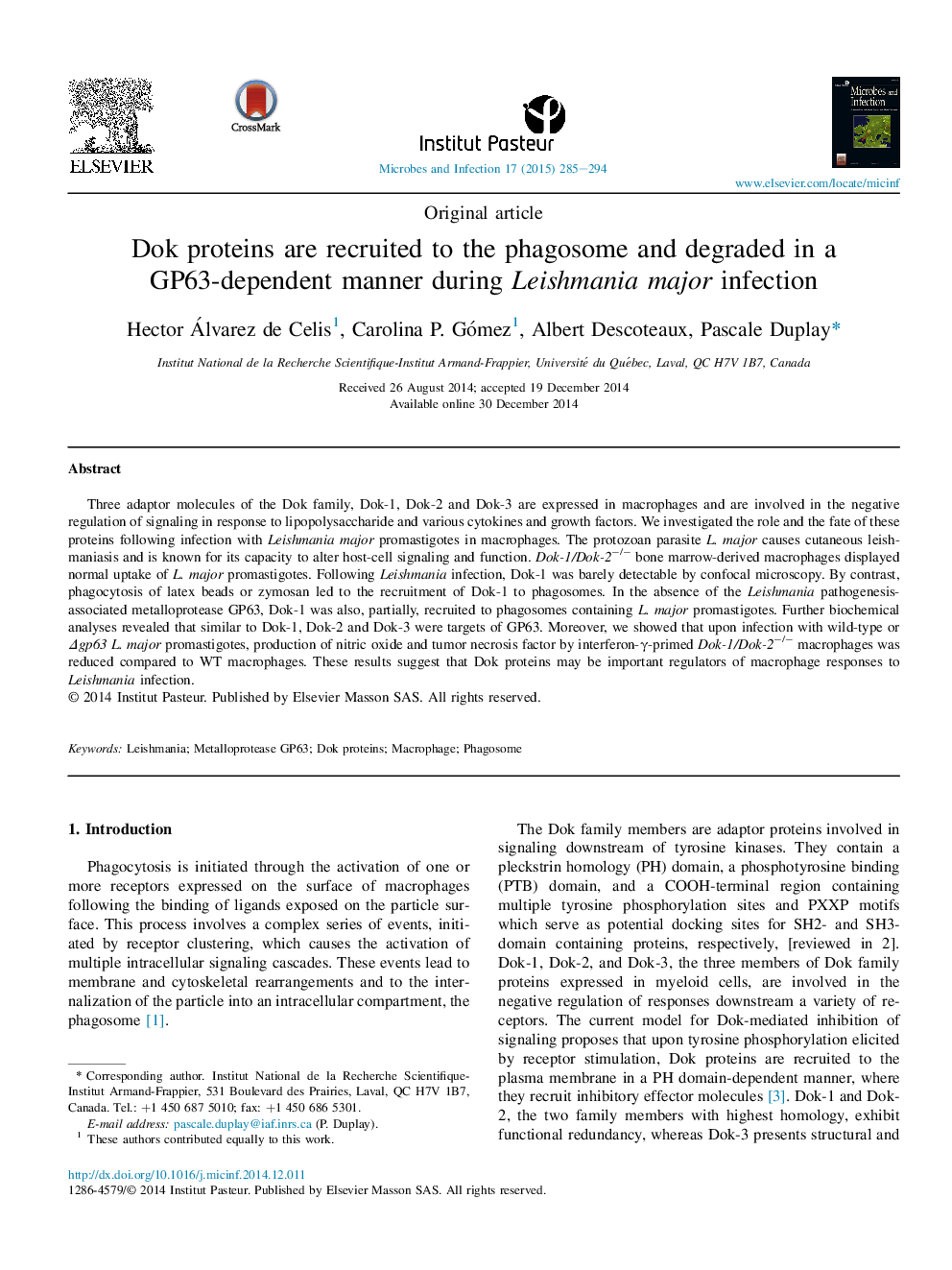| کد مقاله | کد نشریه | سال انتشار | مقاله انگلیسی | نسخه تمام متن |
|---|---|---|---|---|
| 6135678 | 1224887 | 2015 | 10 صفحه PDF | دانلود رایگان |

Three adaptor molecules of the Dok family, Dok-1, Dok-2 and Dok-3 are expressed in macrophages and are involved in the negative regulation of signaling in response to lipopolysaccharide and various cytokines and growth factors. We investigated the role and the fate of these proteins following infection with Leishmania major promastigotes in macrophages. The protozoan parasite L. major causes cutaneous leishmaniasis and is known for its capacity to alter host-cell signaling and function. Dok-1/Dok-2â/â bone marrow-derived macrophages displayed normal uptake of L. major promastigotes. Following Leishmania infection, Dok-1 was barely detectable by confocal microscopy. By contrast, phagocytosis of latex beads or zymosan led to the recruitment of Dok-1 to phagosomes. In the absence of the Leishmania pathogenesis-associated metalloprotease GP63, Dok-1 was also, partially, recruited to phagosomes containing L. major promastigotes. Further biochemical analyses revealed that similar to Dok-1, Dok-2 and Dok-3 were targets of GP63. Moreover, we showed that upon infection with wild-type or Îgp63 L. major promastigotes, production of nitric oxide and tumor necrosis factor by interferon-γ-primed Dok-1/Dok-2â/â macrophages was reduced compared to WT macrophages. These results suggest that Dok proteins may be important regulators of macrophage responses to Leishmania infection.
Journal: Microbes and Infection - Volume 17, Issue 4, April 2015, Pages 285-294